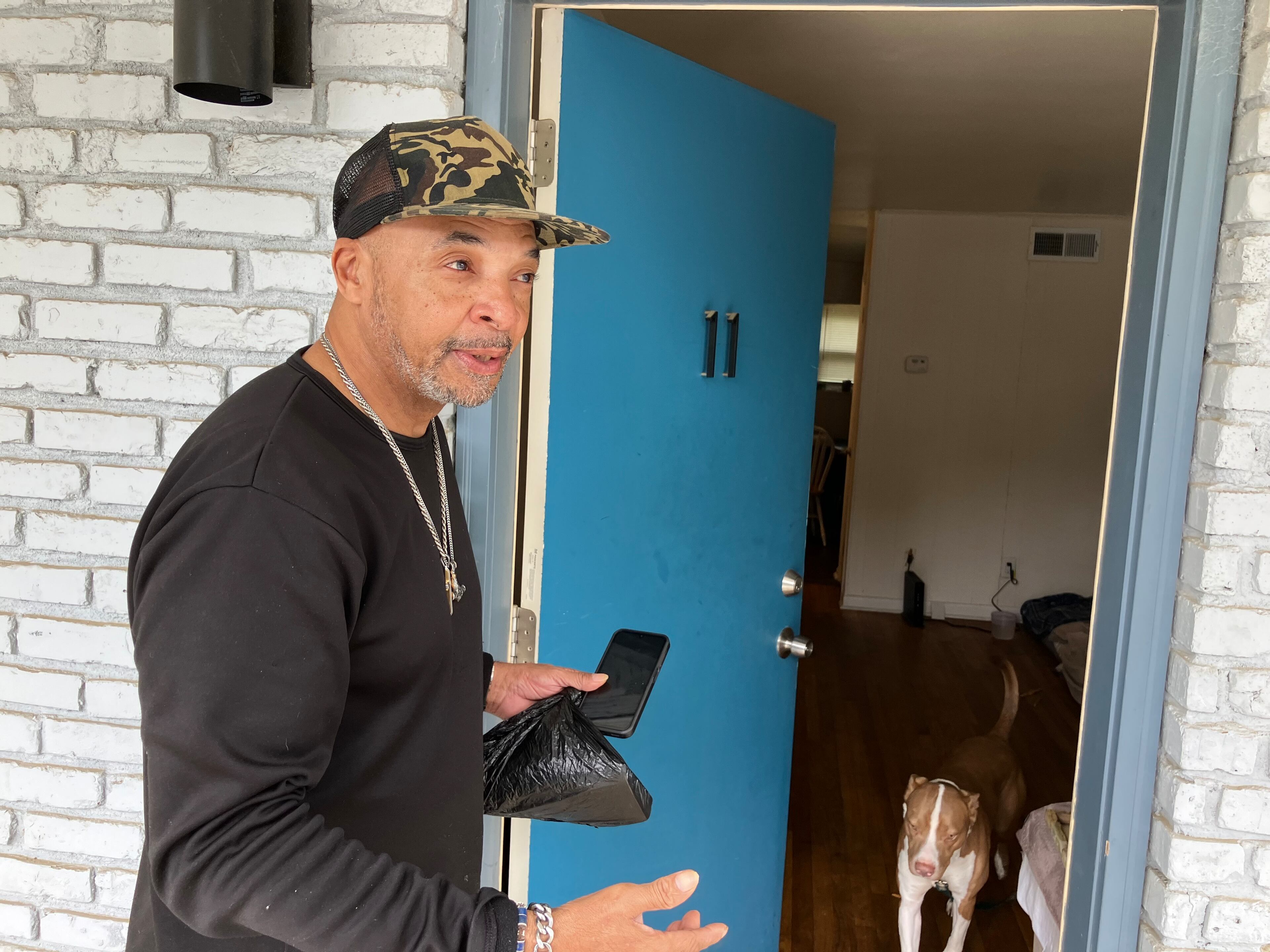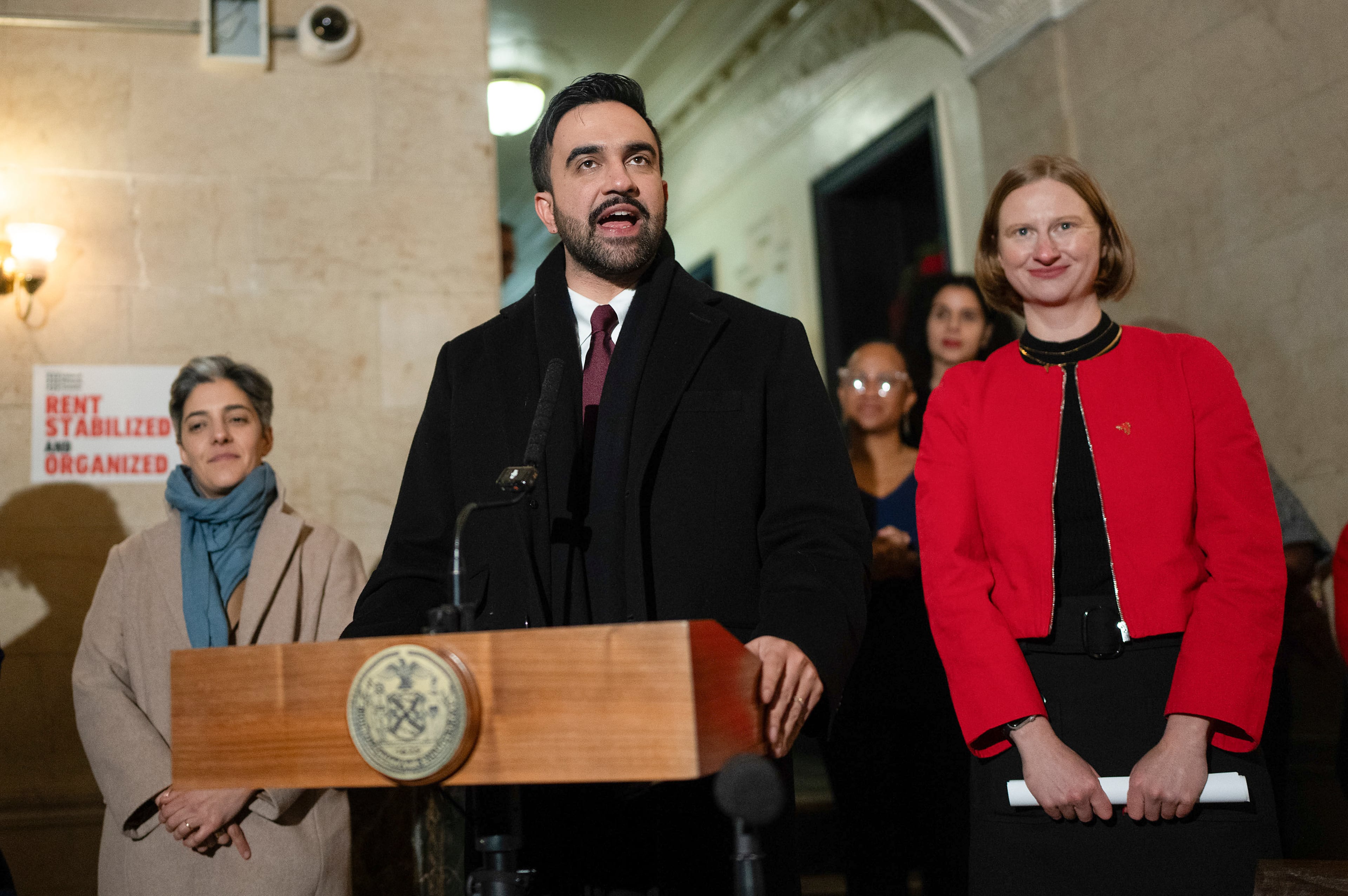Some homeless people struggle with transition to housing after years in camps

When living in a dangerous homeless camp in Atlanta‘s Mechanicsville neighborhood, Willie Jeffries said people sometimes let him spend the night in their homes.
Jeffries finally got his own apartment in October, with help from nonprofit organizations that work with the city. After living in the Cooper Street camp for four years, he was grateful for the safety and comfort his new home offered.
But now Jeffries says he is being evicted on Thursday for violating the strict terms of his lease, including for letting his girlfriend, who is homeless, spend nights with him and for opening his door to friends when it was too cold for them to sleep outside.
“When I see the bad weather, I let people stay,” he said in a recent interview at his apartment in southwest Atlanta. “That‘s my punishment — I treat people like they treat me.”
Jeffries’ plight — returning to homelessness after receiving the help he needed to leave an encampment — underscores the stark challenges of keeping people housed long term after they leave the streets.
Some return to homelessness because they feel isolated in their new homes and miss the community encampments offer; others struggle with a form of “survivor guilt” and feel pressure to let friends stay with them in violation of their lease agreements, housing advocates say.
“They feel bad for friends or family members who are still outside who don‘t have a place to go, so they’re just sharing what they have,” said Tracy Woodard, an outreach worker for the homeless advocacy group Intown Cares.

Jeffries, 60, said he’s preparing to move out and return to life in a tent. Where exactly he will go, he doesn‘t yet know.
He is one of dozens of people who received housing as the city was trying to clear out the sprawling Cooper Street encampment – which was a priority last year for Partners for Home because of several violent incidents at the camp and neighborhood concerns. In April of last year, a man was shot and killed in self-defense on Cooper Street after he threatened Jeffries and attacked someone else nearby, police have said.
The city’s plan is to replace the camp with a development that will include units for more than 100 people who used to be homeless. The area has been fenced off, though there have been attempts to establish new camps there. A developer plans to break ground this month on the first phase of construction.
Partners for Home, the nonprofit that works with the city on its strategy to reduce homelessness, said the Cooper Street camp was closed Oct. 7, and that 44 people living there have since received “rapid rehousing,” which means they are in short-term rental assistance units and receiving case management services.
The goal is to increase self-sufficiency and keep them housed, the organization said. Annie Hyrila, a spokesperson for Partners for Home, said all but one of the 44 individuals who received housing after leaving the Cooper Street camp are still in their units.
That is a high rate of success given the many challenges of keeping people housed, Woodard said.
But like Jeffries, another former resident of the Cooper Street camp who received housing in September told The Atlanta Journal-Constitution that they eventually will have to leave their apartment for lease violations.
However, Aniz Inc., a nonprofit that provides housing assistance and other services, is working to move the 23-year-old into another home with more wraparound services, Woodard said.

No roommates
Woodard was part of a team that helped find housing for people living at the camp last year. Many of the one-year leases do not allow residents to have roommates, she said.
“I understand property managers not wanting them to bring in 10 roommates,” Woodard said.
Jeffries’ lease agreement says that any guest he wants to have overnight would have to fill out a rental application and submit it to the rental office along with a picture ID, at a cost of $250. He admits he did not follow that rule.
“Like everyone, tenants must abide by the terms of their lease,” Cathryn Vassell, chief executive officer of Partners for Home, said in an email last week. “If relocating is inevitable, we will work (with) Mr. Jeffries to offer him other housing options.”
Woodard said many people used to living in encampments struggle with intense loneliness when they have an apartment all to themselves. There are many other challenges with the transition, including addiction and mental health issues, she said.
Woodard also said she and other advocates worked hard to house people living at the camp before it was formally closed, bulldozed and fenced off last year.

Atlanta City Councilman Jason Dozier, who has lived in the Mechanicsville neighborhood for a decade, said smaller camps have popped up across the property after the fence was breached.
“So while it‘s not as large of a concentration of people, efforts to close and secure the site have been an ongoing process,” Dozier said in an email. “The city has been working to address those, and the people living there will be placed in housing by the time construction begins.”
Atlantica Properties plans to break ground on two buildings containing about 112 modular apartments for formerly homeless individuals by the end of May. Partners for Home will be procuring a provider for services like mental health and substance use treatment, education and employment opportunities for the residents.
Darion Dunn, managing partner for Atlantica, said the goal is to finish the two buildings, near the intersection of Cooper and Eugenia streets, by the end of this year.
Partners for Home hired Atlantica to handle the development. It is part of a larger plan by the city and Partners for Home — announced in August 2023 — to provide 500 quick-delivery housing units by the end of 2025.
In addition, the city is working to facilitate the development of about 70 townhouses that will include market-rate units for sale, along with affordable options for sale on the site, said Josh Humphries, a senior housing adviser to Atlanta Mayor Andre Dickens.
Dozier said the townhouse development, in addition to the supportive housing units, will provide value to the community and make it safer.

Some Mechanicsville residents are glad the Cooper Street camp was cleared, but have concerns about the planned development and about continued homelessness in other parts of the neighborhood.
“Mechanicsville is just — no one cares about it,” said Princess Wilkes, housing chair of the Mechanicsville Civic Association. “This is one of the few neighborhoods that is circling around downtown that has the homeless problem.”
Wilkes said some residents of her neighborhood worry that the development’s low-income units for formerly homeless individuals could hurt property values. She adds that she personally cares about people experiencing homelessness and believes they should get the help they need.
“It‘s unbelievable in a first-world country that we can drive down the street and see this type of homelessness,” she said.

Jeffries, who lived in the Cooper Street camp for about four years, is familiar with the many challenges he will face when he returns to homelessness this week. He said he has to leave his apartment by 5 p.m. Thursday.
In a recent interview, Jeffries was sometimes stoic about his pending eviction, calling himself a survivor and saying he doesn‘t want to stay where he’s not wanted. Moments later, he was in tears.
“I love living here,” he said, his voice quavering. “It really hurts to throw me out like that.”
Editor’s note: This article has been updated to further explain the safety concerns at the Cooper Street encampment that helped make its closure a priority for Partners for Home last year.



